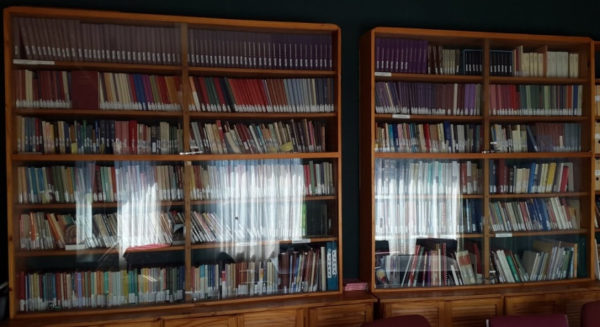
The 8th issue of The Johannesburg Review of Books was released last December. The issue, which is from the magazine’s first volume, features short fiction, poetry, an interview, a comment, a letter, an essay, and photography.
Among its fiction contributors are 2007 Caine Prize winner Henrietta Rose-Innes, Yewande Omotoso, SJ Naude, Perfect Hlongwane, Gloria Mwaniga Minage, Mawumi Mbao, Julie Nxadi, Laura Fish, Richard de Nooy, Akbar Hussain, an excerpt from debut novelist SL Masunda’s Imagine Ghosts Telling Tales, a story from Niq Mhlongo’s collection Affluenza, an allegory by Brittle Paper Award for Essays finalist Bongani Madondo, and an excerpt from a work-in-progress by Booker Prize finalist Damon Galgut. Poetry contributors are Fiona Zerbst, Jim Pascual Agustin, and Simon van Schalkwyk.
There is an interview of Nthikeng Mohlele discussing his award-winning novel Pleasure; a comment by Andrew Miller; Sarah Ruden’s response to a review of her translation; and an essay by Tonderai Munyevu. In the Francophonie section is a short story by Driss Ksikes, and a report of Eric Vuillard’s win of the 2017 Priz Goncourt for his novel L’ordre du jour. Rounding off the issue are photographs of J.M. Coetzee’s childhood and of Wole Soyinka, Gcina Mhlophe and Athol Williams by Victor Dlamini.
Here is the editorial note.
Welcome to the eighth issue of The Johannesburg Review of Books.
In South Africa, there’s December, and there’s Dezemba—the latter being a period of time that roughly corresponds to the former, but bearing an identity all its own.
Namely, Dezemba is that time of year when the collective southern African festive season party starts, and when some people make plans to go home—to Zimbabwe, to the Eastern Cape, to Limpopo—or go on holiday, which can be as near as Durban or as far as the Swiss Alps.
This month’s cover image, from a new title out from Fourthwall Books called Johannesburg. Made in China, gestures, with its purple taxi, in the direction of Dezemba, which is a time of taxis: taxis leaving major centres like Johannesburg, ferrying all and sundry to their families. It’s busy, very busy—and then it’s quiet, very quiet, as people settle into their holiday routines and the pace slows down, practically to a halt.
Dezemba is the perfect time to read fiction, then: a time when our minds enjoy extra bandwidth, shift easily from analysis to narrative, open receptively to stories and storytelling. To that end, The JRB is delighted to bring you the first of what we hope will be an annual Fiction Issue, featuring no fewer than a dozen original short stories. Take it on the road with you this Dezemba—we think you’ll find much to linger over, delight in and be moved by.
Over the course of our first year, we have been delighted at the popularity of the original poetry we have been privileged to publish. This month, we feature previously unpublished work from no less than three poets: Fiona Zerbst, Jim Pascual Agustin and Simon van Schalkwyk.
In a necessary exception to the Fiction Issue rules, we sat down for a literary chat with Nthikeng Mohlele, to celebrate the recent awards success of his novel Pleasure.
The offering from JRB Photo Editor Victor Dlamini this month is three striking original portraits of Wole Soyinka, Gcina Mhlophe and Athol Williams, while we also feature some childhood photography from none other than JM Coetzee, including a very fetching teenage selfie.
Writer and actor Tonderai Munyevu’s dispatch from Harare is an honorary adjunct to our December Fiction Issue; a piece of reportage as vivid as fiction.
We have provided a space for Sarah Ruden to respond to David van Schoor’s review of her translation of Augustine’s Confessions, which appeared in our November issue, and also reproduce an edited version of Andrew Miller’s keynote speech from the 2017 Dinaane Debut Fiction Award ceremony, in which he argues for the importance of writing stories in a time of digital disorder.
In Francophone news, read a new short story by Moroccan writer Driss Ksikes, and find out who won the coveted Prix Goncourt.
Read the issue HERE.









COMMENTS -
Reader Interactions